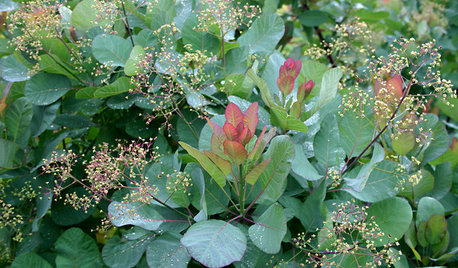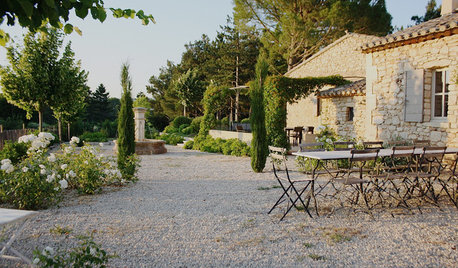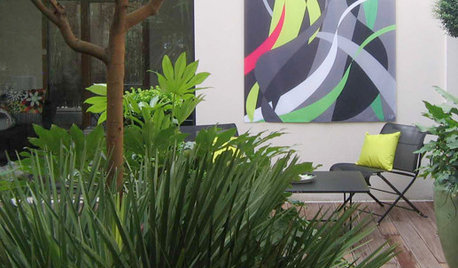Old fashioned gardening techniques that really work
castorp
16 years ago
Related Stories

LANDSCAPE DESIGNGreat Design Plant: Old Fashioned Smoke Bush
Balance garden color with this shrub's cool blue-green foliage, luminous when backlit and sporting yellow-green flowers in spring
Full Story
SELLING YOUR HOUSEHome Staging to Sell: The Latest Techniques That Really Work
Get up to speed on the best ways to appeal to potential buyers through accessories, furniture, colors and more
Full Story
MY HOUZZMy Houzz: Memories Fill a Cape Cod Timber-Frame Home
Water views, traditional style and an old-fashioned building technique warm up this New England Shingle-style home
Full Story
PRODUCT PICKSGuest Picks: Outfit Your Home in Fab Fashion Designer Accents
You don their clothes to look chic. Now your home can have its turn, with decor from some of the world's greatest fashion houses
Full Story
HOUZZ TOURSMy Houzz: Art and Fashion Inspire in a Maryland Family Home
White walls provide a clean backdrop for a downtown home infused with art, pattern and fashion
Full Story
LIVING ROOMS9 Fashionably Cool Living Room Color Palettes
Chill out in a living room decked in cool-spectrum shades straight from the runway
Full Story
DECORATING GUIDESFashion Week Trends Your Home Will Wear Well
Spring 2014's ready-to-wear clothing collections aren't just for wardrobes
Full Story
WINDOW TREATMENTSBalloon Shades Float Into Fashion
Use these formal window treatments to add texture and luxury to traditional rooms
Full Story
TRADITIONAL HOMESMy Houzz: A Centuries-Old French Estate Charms Again
Time and local artisans help a couple realize an idyllic French country retreat — and you can rent it
Full Story






digit
paulc_gardener
Related Professionals
Mitchellville Landscape Architects & Landscape Designers · Salisbury Landscape Architects & Landscape Designers · Cockeysville Landscape Contractors · Edwardsville Landscape Contractors · El Reno Landscape Contractors · Fort Payne Landscape Contractors · Miller Place Landscape Contractors · Pleasant Hill Landscape Contractors · San Antonio Landscape Contractors · Wallingford Landscape Contractors · West Coon Rapids Landscape Contractors · Maplewood Landscape Contractors · Maple Heights Landscape Contractors · Bensenville Landscape Contractors · Libertyville Driveway Installation & MaintenancecastorpOriginal Author
pnbrown
skagit_goat_man_
digit
wayne_5 zone 6a Central Indiana
digit
kabuti
hotzcatz
peanuttree
shapiro
gardengalrn
aka_peggy